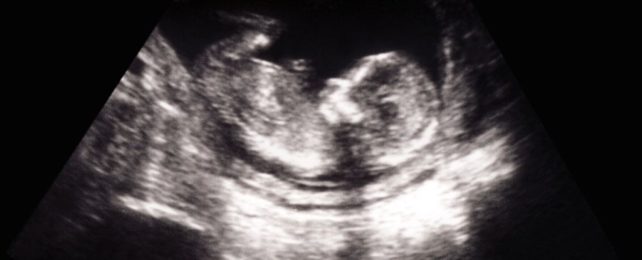For more than a century, the womb has been largely considered a sterile environment. Yet even today, with advanced medical technology at hand, researchers cannot come to a consensus over whether the placenta and the amniotic fluid that bathes a fetus are truly germ-free or not.
Some scientists claim to have detected signs of microbial life in fetal samples in recent years. This has led them to argue that the human microbiome – the community of bacteria, fungi, and archaea that live on and within us – is present before birth.
Others disagree. According to a group of researchers from North America, Europe, and the UK, such studies are based on contaminated samples.
The microbes detected in past findings, the authors argue, were unintentionally introduced to the scene, either after vaginal delivery or during a clinical procedure to remove a fetus or samples of its DNA.
The very notion of a fetal microbiome is radical. It flies in the face of basic immunological principles and the very basis behind germ-free mammals, which assumes a fetus develops in a sterile environment.
While it is possible for microbes to pass from mother to fetus by crossing the placenta, these foreign invaders are usually quickly taken care of by the local immune system in the amniotic fluid. When microbes persist here, they tend to cause serious health and developmental issues for the fetus.
"Such disagreement over a fundamental aspect of human biology poses a challenge for scientific progress," lead author Katherine Kennedy, a microbiologist at McMaster University in Canada, and colleagues write.
"Failure to resolve this issue risks diverting finite resources into research that results in no advancement for fetal and maternal health, and misguided attempts to therapeutically modify a non-existent fetal microbiome."
The new paper attempts to clear up some of that confusion by reviewing the findings and methods of previous research, focusing on four recent reports published since 2020.
By directly examining the microbiology of the human fetus, the selected studies uncovered subtle signs of potential microbial inhabitation. Half of the reports detected viable, low-density microbial populations in the fetus, while the other two detected only the metabolic byproducts of microbes, or traces of bacteria often found on skin.
Collecting fetal samples without introducing microbes is tricky work, and in some of these past studies, Kennedy and colleagues argue, critical controls were conspicuously missing.
Two of the papers mentioned above collected samples after the fetus was vaginally delivered. Another collected samples following birth by C-section. Each of these routes from the body can introduce the fetus to microbes from the mother's own microflora and nearby surroundings. And yet only the C-section study – of which Kennedy was a lead author – accounted for that exposure.
In the two studies that claimed microbes had colonized the fetus, every single genus of microbe detected was also found at varying levels in most control samples from other research.
"The omission of vaginal controls… to determine the microbiota of vaginally delivered fetuses is a considerable limitation that casts doubt on the authors' conclusion that the microorganisms originate from the womb," the new paper warns.
What's more, other researchers not involved in the analysis have pointed out that microbial colonization and a consistent microbiome are fundamentally different.
"The available work so far suggests it is certainly possible that microbes are in the in utero environment, but I believe at best these microbes come from somewhere else in the body and are not native to the in utero environment," microbiologist Suzanne Devkota from the University of California, Los Angeles wrote in a recent commentary.
"It's hard for me to reconcile these human studies proposing a placental microbiome with the fact that germ-free animals exist."
Besides, even if a small number of microbes really do colonize the fetus before birth, how does the developing immune system stop those contaminants from taking advantage of the new life form? And how do immune cells know which microbes to let in and which to kick out in the first place?
"[F]rom a clinical perspective, most interpretations brought forward in recent publications with regard to the presence of microorganisms in fetuses seem to be biologically difficult to reconcile, as it is highly plausible that they would result in harm to or death of the fetus," Kennedy and colleagues conclude.
"Through multiple angles of explanatory considerations, we conclude that the evidence is strongly in favor of the 'sterile womb' hypothesis."
The study was published in Nature.
